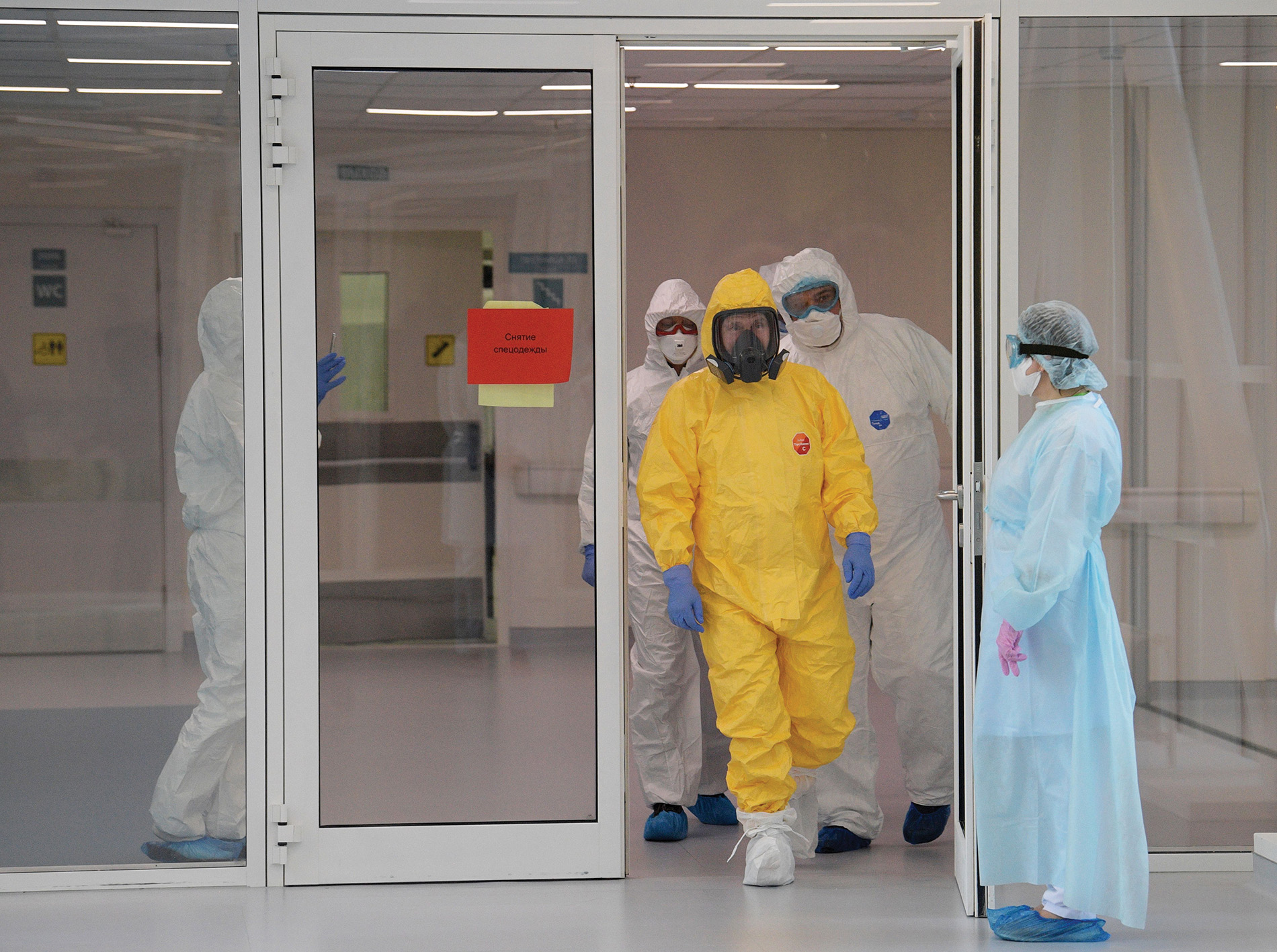“This country has no future,” lamented Russia’s opposition website Republic in mid-March. “It only has the status quo. And that status quo has both a surname and a title.” The week before, on 10 March, as coronavirus spread towards Russia’s borders, Vladimir Putin had announced a raft of constitutional amendments that would waive his six-year term limits until 2036.
That same day, the mayor of Moscow, Sergey Sobyanin, himself a Kremlin appointee, began shutting down the entire city in the face of the looming pandemic. The anti-Putin opposition, which had been enjoying a string of modest successes, such as a strong showing in autumn’s Moscow city council elections, lost its only real means of leverage: making a lot of noise. Its leaders, exiled to YouTube channels and Twitter, were in effect cornered: they could hardly call for mass protests during a deadly pandemic.
Decades of opaque authoritarianism have drilled an instinctive scepticism of the authorities into many Russians. As the pandemic spread, dark musings and conspiratorial memes multiplied in the liberal press and on social media. Not only was the Kremlin exploiting a public health crisis to ram through another constitutional quick fix to keep Putin in office, but the state was concealing the scale of the crisis. Russia’s case count, initially low despite the country’s close ties to China, Iran and Italy, where the infection and mortality rates have been high, suggested the same denialist instinct that was behind previous cover-ups of disasters, from Chernobyl in 1986 to the Kursk submarine disaster in 2000.
The coincidence of coronavirus quarantines and controversial constitutional change was, in all likelihood, a happy accident, rather than a pre-hatched plot. After all, Putin now must hold a referendum on the new constitution in April 2020, presumably under epidemic conditions.
The government’s response to the crisis has been at least partially successful. An early shutdown of the remote 4,000km border with China bought Russia some time, initally seeming to prevent coronavirus from crossing the Far Eastern frontier.
But many believe the number of confirmed infections (at the time of writing, 306, with no deaths) is inaccurate. Russia’s chronically underfunded state healthcare system is ill-equipped to administer the number of tests needed. In recent weeks both Reuters and the Latvia-based website Meduza have reported unusually high incidences of seasonal flu and pneumonia in Moscow and St Petersburg. There are widespread fears that even if the government is not actively suppressing information, then a decrepit healthcare infrastructure may be masking more accurate coronavirus figures.
For its part, the Kremlin seems to realise that Russia’s threadbare state is inadequate in the era of coronavirus. A bailout package, including price controls on essential goods, limited rent holidays and financial support for small businesses is reportedly in the works, with a price tag of 300 bn roubles ($3.8bn).
That is small compared to proposed trillion-dollar tranches of coronavirus spending in other countries, but a big deal for a government that has spent two decades on a tight fiscal leash, scaling its social spending commitments ever further back.
This new statist turn, however, isn’t entirely a child of coronavirus. The same constitutional amendments to Putin’s term limits included a series of populist pledges to index pensions, raise the minimum wage and improve the healthcare system.
Though Duma speaker Vyacheslav Volodin heralded the dawn of a Russian “welfare state”, few had expected much from a constitutional grab bag seemingly designed to keep Putin in power. It would be ironic if the coronavirus crisis forced the Kremlin to put its money where its mouth is and create the promised Russian welfare state.
Read the rest of the “The state transformed” series here
This article appears in the 18 Mar 2020 issue of the New Statesman, The final reckoning






